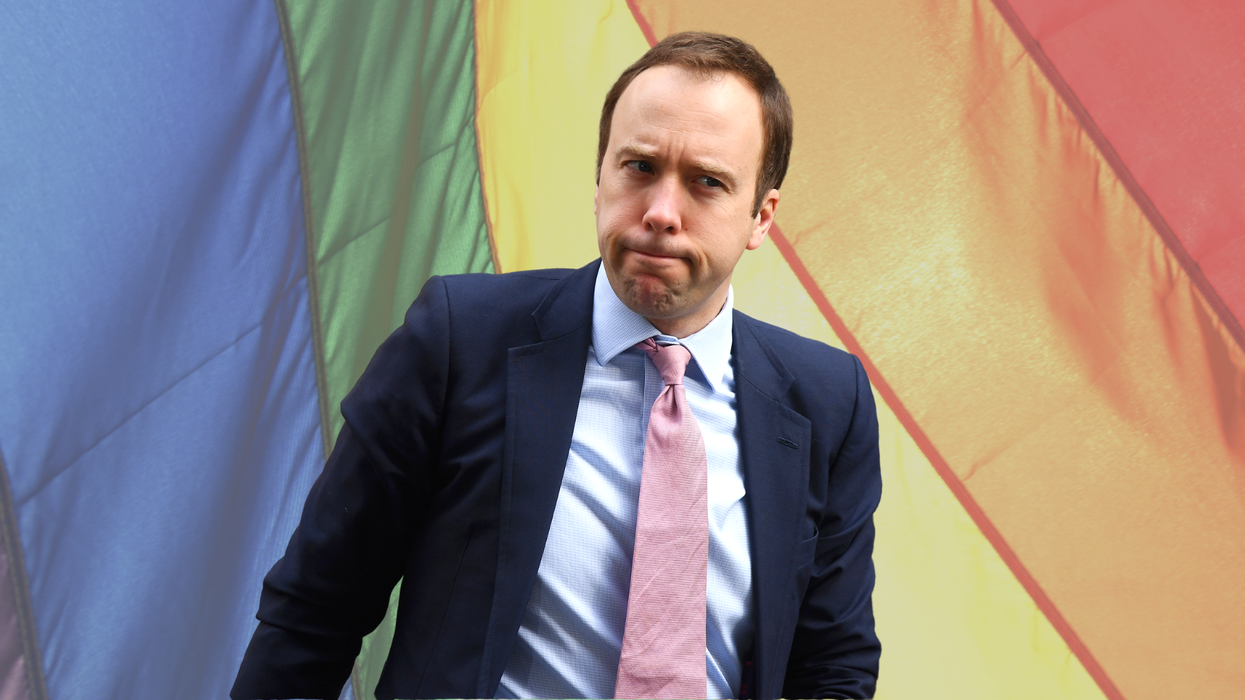Moya Lothian-McLean
Jun 02, 2020

Getty/iStock
Despite time feeling as though it no longer carries any meaning, somehow we have reached the month of June.
Which means many countries are now celebrating Pride month, although celebrations this year will be more muted as a result of the coronavirus pandemic.
To lift spirits (or something) health secretary Matt Hancock decided to mark the 1 June by sending out a celebratory tweet to the LGBTQ+ community, wishing people a happy Pride month.
Hancock’s gesture wasn’t wholly received the way he intended it, though.
The MP was swiftly reminded about his party’s past and present treatment of LGBTQ+ people.
Like Section 28, the 1988 clause introduced by then-prime minister Margaret Thatcher.
The amendment banned “promotion” of homosexuality by local authorities.
In real life terms, this translated to schools being unable to teach topics related to LGBTQ+ issues, such as relevant sexual and emotional education.
Teachers couldn’t even discuss homosexual relationship and libraries couldn’t stock books or films containing LGBTQ themes.
In a speech the year before the clause was brought in, Thatcher declared that children were being taught they had “an alienable right to be gay”.
Children who need to be taught to respect traditional moral values are being taught that they have an inalienable right to be gay.
All of those children are being cheated of a sound start in life—yes cheated.
Those who grew up under Section 28 say it fostered intense homophobia.
Section 28 was only properly ended with the introduction of the 2010 Equality Act.
And although Hancock has personally voted in favour of gay rights, there was anger at a senior Tory celebrating Pride month when a member of a party with such a record.
Dr Declan Kavanahgh, author ofEffeminate Years, said Hancock’s tweet was “meaningless support”.
One Twitter user meanwhile quoted the homophobic remarks made by Boris Johnson, Hancock’s boss, about gay men.
The Tory record on trans rights wasn’t forgotten either. Equalities minister Liz Truss has sparked concern among members of the UK trans community with promises to “protect” single-sex spaces for women and girls and comments about “making sure” than under-18s are “protected” from “irreversible” decisions.
Her remarks, and subsequent refusal to elaborate further, has alarmed much of the LGTBQ+ community who fear that legal self identification for trans people could become harder to attain and vital support for trans youth could be reduced or removed.
Hancock’s tweet prompted fresh calls of “anti-trans” bias on Truss’ part.
And Hancock himself was even questioned over his failure to ban the highly controversial practice of so-called LGBTQ+ "conversion therapy" in his role as health secretary, despite a promise from the party to do so two years ago.
It was also pointed out that Hancock and his party chose to enter a coalition with the Democratic Unionist Party in 2017, while their record on deporting LGBTQ asylum seekers was similarly brought up.
The DUP virulently oppose same sex marriage and once ran a campaign called “Save Ulster from Sodomy” to argue against the decriminalisation of homosexuality in Northern Ireland in the 1970s.
In 2019 it was revealed that the Home Office had refused at least 3,100 asylum claims from LGBTQ individuals fleeing countries where homosexuality is criminalised. A study the same year found that LGBTQ refugees were also more likely to have asylum applications granted if they act in a stereotypically "flamboyant" fashion.
It's true that the some Tories have played a part in advancing LGBTQ+ rights over the years. Matthew Parris, a former MP, co-founded LGBT rights organisation Stonewall. Edwina Currie famously broke party lines to campaign for equal age of consent alongside Labour activists. And although most Tories voted against it, David Cameron did introduce the legislation that brought same-sex marriage to England and Wales in 2013.
Still, perhaps the Tories need a little more reflection when it comes to their record on LGBTQ rights. Because people are clearly not ready to forget about it.
Top 100
The Conversation (0)













